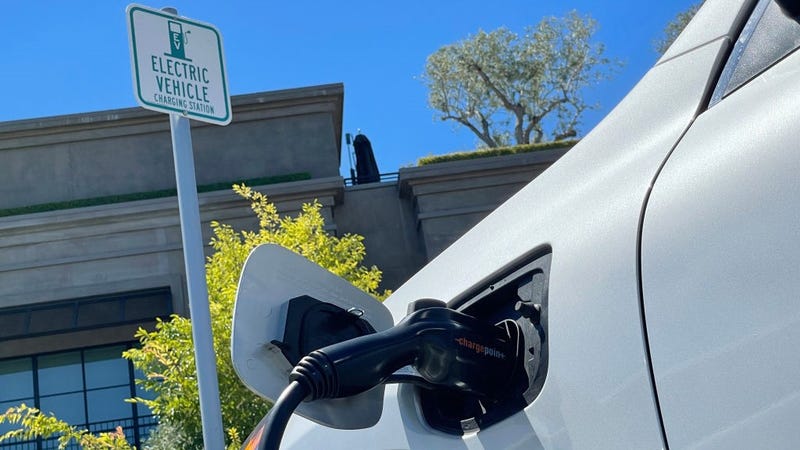
As part of the Inflation Reduction Act that President Joe Biden plans to sign into law on Tuesday, a tax credit of up to $7,500 could be issued to help lower the cost of purchasing an electric vehicle.
That's the good news, and here's the bad: The bill requires that the electric vehicle's battery must be built in North America with minerals mined or recycled on the continent to qualify for the tax credit, and most of the electric vehicles in the country won't meet the qualifications, according to The Associated Press.
The Alliance of Automotive Innovation told the AP that roughly "50 of the 72 electric, hydrogen or plug-in hybrid models that are sold in the United States wouldn’t meet the requirements."
The bill also offers a tax credit of up to $4,000 for buying a used electric vehicle. To qualify for the tax credit, an individual must have an income of $150,000 or less and a couple's income must be $300,000 or less.
Additionally, "40% of the metals used in a vehicle’s battery must come from North America," and that number increases to 80% by 2027 and eventually 100% by 2029. Only half of the tax credit would be eligible for buyers and automakers if the metals requirements aren't met.
"An estimate from the Congressional Budget Office forecasts 11,000 new EVs will receive tax credits in 2023 assuming $7,500 per vehicle," according to Reuters.
John Bozzella, CEO of the Alliance of Automotive Innovation, issued a statement to explain the tax credits for buying electric vehicles.
"Americans who would otherwise receive the credit today (say, the family test driving a car this weekend and on the fence about whether to make the switch to an EV) will no longer be able to take advantage of this financial incentive to purchase an EV," Bozzella said.
"The $7500 credit might exist on paper, but no vehicles will qualify for this purchase incentive over the next few years. That’s going to be a major setback to our collective target of 40-50 percent electric vehicle sales by 2030."
The European Union said last Thursday that the electric vehicle tax credit plan as part of the Inflation Reduction Act "would discriminate against European producers and break World Trade Organization rules," according to the AP.
"The European Union is deeply concerned by this new, potential, trans-Atlantic trade barrier," European Commission spokeswoman Miriam Garcia Ferrer said. "We think that it’s discriminatory, that it’s discriminating against foreign producers in relation to U.S. producers."
"Of course this would mean that it would be incompatible with the WTO," she added.
Bozzella went on to say in his statement that he believes electric vehicle tax credits would be beneficial, "but the requirements ought to be an inducement to industrial base change – not unattainable and punitive to consumers."
"A more gradual phase in of the battery component, critical mineral and final assembly requirements – that better reflect current geopolitical, sourcing and mineral extraction realities – will preserve the credit for millions of Americans and keep the country focused on building domestic supply chains able to support our electrified transportation future," Bozzella said.
He added that expanding the list of eligible countries would help the tax credit plan succeed.
"Broadening the list of eligible countries will provide more options to more quickly reduce our reliance on China," Bozzella said. "These and other modest revisions to the EV tax credit can meet the needs of today’s consumers, build America’s industrial base and enhance our national security."


